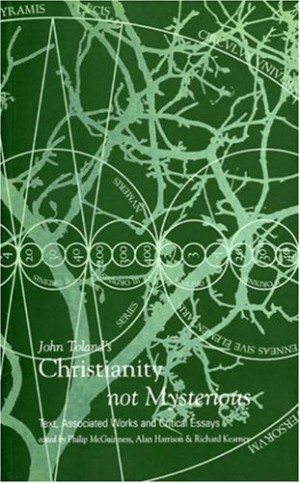
John Toland’s Christianity Not Mysterious
Text, Associated Works and Critical Essays
By: Alan Harrison , Philip McGuinness , Richard Kearney
Publication Date: October 1997
€50.00
On 11 September 1697, Christianity not Mysterious was burned in Dublin by order of Parliament. Three hundred years later, this seminal text of Irish – and European – philosophy becomes available in a new scholarly edition, along with John Toland’s defences of his work and eight critical essays by leading scholars.
Born into a Catholic, Irish-speaking family on the Inishowen peninsula of Co. Donegal, John Toland (1670-1722) became a Protestant as a teenager; he later embraced deism and became the first exponent of pantheism. Christianity not Mysterious, first published in 1696, argues that ‘there is nothing in the Gospels contrary to reason’ and that the so-called Christian mysteries are merely the inventions of competing sects – a view that threatened the very basis of the supremacy of the Established Church in Ireland. Toland left Ireland under threat of arrest and spent the remainder of his life in Britain and on the continent, where Christianity not Mysterious was enormously influential.
Toland’s advocacy of reason over revelation in Christian belief went further than Locke and other previous rationalists, and provoked a distinguished Irish counter-Enlightenment tradition that included Swift, Berkeley, Burke and many others. The first great work of Irish philosophy since the writings of Ériugena in the ninth century, Christianity not Mysterious is a dazzling piece of rhetoric, by a gifted controversialist. The critical essays establish Toland’s central position in the theological and scientific debates of the early Enlightenment, and make a case for his continuing relevance to the vexed questions of Irish and European identities.
Contents:
- Christianity not Mysterious (1696)
- An Apology for Mr Toland (1697)
- A Defence of Mr Toland (1697)
- Vindicius Liberius (1702)
- ‘John Toland: An Irish Philosopher?’ – Richard Kearney
- ‘The Irish Freethinker’ – David Berman
- ‘Christianity not Mysterious and the Enlightenment’ – Philip McGuinness
‘John Toland’s Celtic Background’ – Alan Harrison - ‘Looking for a Mainland: John Toland and Irish Politics’ – Philip McGuinness
- ‘Toland on Faith and Reason’ – Desmond M. Clarke
- ‘Toland’s Semantic Pantheism’ – Stephen H. Daniel
- “Perpetual Flux”: Newton, Toland, Science and the Status Quo’ Philip McGuinness
‘An invaluable publication. How excellent it is to have Toland’s own writing available.’ – New Humanist
‘Toland was a remarkable and hugely influential man. The publication of Christianity not Mysterious was a defining moment in the movement into the Enlightenment. The essays are all fine studies, each brushing across the others as well as across the text itself, making for a copy well worn and well marked by the time you’ve reached the end. Philip McGuinness’s three essays, are excellent studies of the times and of the man, continually aware of the complexities of the age and of the labyrinthine relationships between politics and religion, and also of the subtleties of the work of a man who was truly of his time. A book such as this teaches us that from people such as this all subsequent ages can learn.’– Barty Begley, The Irish Times
‘It is a testimony to Toland’s remarkable mind, that his work retains some of the subversiveness it contained upon publication. The issues he wrote about, and the influence he had upon others, were both national, archipelagic and international in scope. John Toland remains something of a mystery, let this edition of Christianity not Mysterious contribute much to his permanent unravelling there is much of value here for the reader.’– Charles Ludington, History Ireland
‘A splendid edition.’– Max Wright, Fortnight
ABOUT THE EDITORS
PHILIP MCGUINNESS is a writer and lecturer at Dundalk Institute of Technology.
The late ALAN HARRISON was a Professor in Modern Irish at University College Dublin.
RICHARD KEARNEY is a Professor of Philosophy at University College Dublin.
| ISBN | 9781874675976 |
|---|
| Weight | 0.5 kg |
|---|---|
| Dimensions | 145 × 225 mm |
| Publication Date | October 1997 |
| Format | Hardback, 352pp |

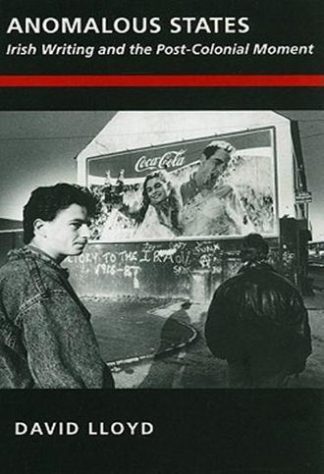
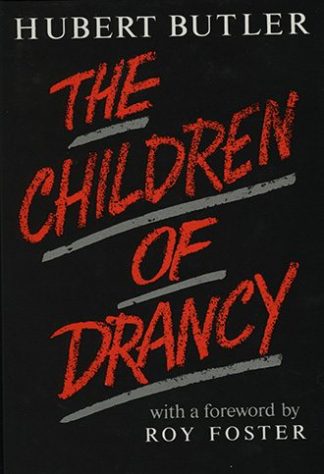
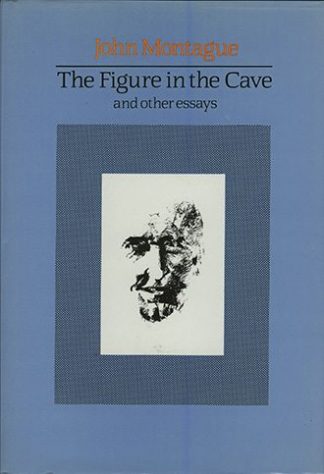
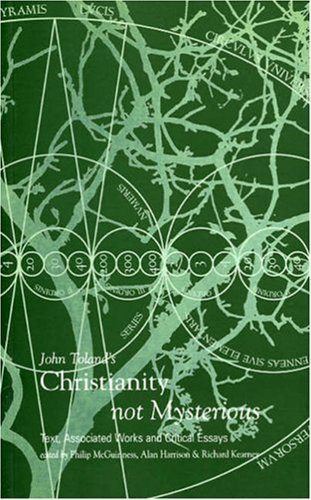
Lilliput Press –
“An excellent book! The most wonderful fact is that it was written in the time when people were killing for religion. I am not sure how sensational this book would be if it were written in the 20-th century when people stopped assigning such great significance to religion, but for his time and place (especially Ireland!) a man had to be really brave to write something as controversial as this.”
Lilliput Press –
“Toland’s oft-cited Deistical work reads as apologetic rather than truly controversial. The actual rhetorical attacks on Christianity are found not in what Toland says, but rather what he doesn’t. Toland frequently sets up strong, reason-based objections to fundamentally held religious “truths” only to excuse them with deliberately weak responses. The burden of truth carefully remains with the defenders of revelation and is never realized in this debate Toland pretends to have with himself.
Other than the occasional questioning of clerical interpretations (Toland frequently expounds a commonly held truism and after defending it philosophically on it’s own “merits” he often adds at the end, as if to paralyze the Church with indecision regarding his infidelity, “if it be true.”) he pretends agreement with the Church in nearly every doctrinal detail.
In this pre-pantheist dissertation, Toland’s words are nearly silent with respect to a true rebellion against the established dogma of the Church, but the unwritten screams to a deafening crescendo for an immediate ascension to unrevealed reason.
With cunning and an apparently insatiable appetite for controversy, Toland does a marvelous job of appearing to walk the literary fence dividing the heathens from the faithful. But an occasional glace between the lines will leave no doubt as to where he truly stood.” DARIN WILLIAMS
Lilliput Press –
“John Toland’s “Christianity not Mysterious” is one of the great books of free thought. Toland maintains that reason, not revelation, should be the basis of religious belief. Toland believes in God, but maintains that there is nothing contrary to reason in Christianity. He angers the priestly class by showing how ancient pagan rituals were adopted by the Roman Catholic Church, which then found their way into Protestantism.
In essence, Toland relates that anything contrary to reason should be rejected. If we do not know something, we should remain in ignorance rather than embrace superstition and miracles. He also indirectly relates that there are no need for intermediaries between a man and God. I say indirectly because one had to be careful in this era. This book,of course, infuriates the Anglican Church leaders. Consequently, the book is banned and burnt in Ireland, and Toland is forced to flee to the European Continent. A member of the Irish Parliament called for Toland to be burned. Ah..the love of organized religion.year after “Christianity not Mysterious” was published, Scottish freethinker Thomas Aikenhead was burnt at the stake for his anti Christian views.
The essays that follow “Christianity not Mysterious” are great and provide insight into Toland. Toland was a republican and a “Commonwealthman” who edited the libertarian writings of Harrington’s “Oceana”, and works of John Milton. Toland was a lifelong freethinker, proponent of deism, pantheism, and human liberty. For these reasons he made eternal enemies of the Anglican and Catholic churches.
“Christianity not Mysterious” is a powerful assault on irrationality, superstition, and what he called “priestcraft.” Thank Nature’s God for a man like Toland. Read the book and free your mind!” G F GORI